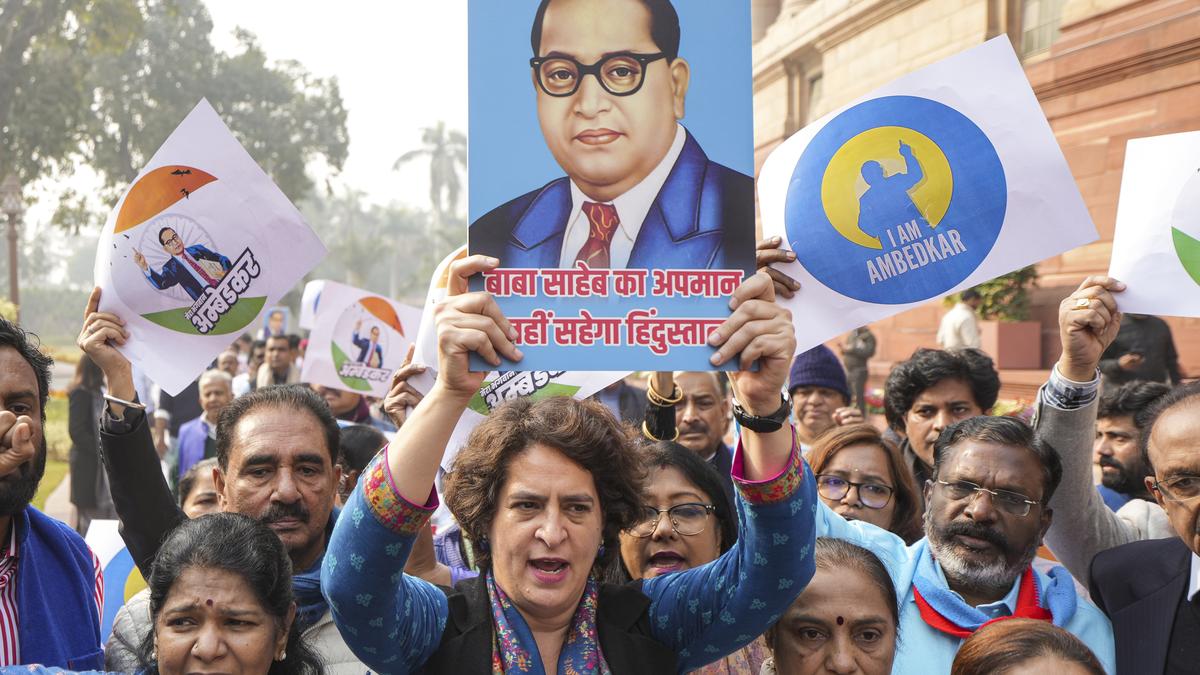The INDIA bloc managed to prevent the Bharatiya Janata Party (BJP) from reaching the majority mark in the 2024 Lok Sabha elections. However, it went on to lose the Haryana and Maharashtra Assembly elections. In the ongoing campaign to the Delhi Assembly elections, the INDIA bloc appears fragmented as certain constituents of the coalition, such as the Samajwadi Party and the Trinamool Congress, are supporting the Aam Aadmi Party (AAP), leaving the Congress to fight on its own. Has the INDIA bloc lost its vitality after the Lok Sabha polls? K.K. Kailash and Hilal Ahmed discuss the question in a conversation moderated by Sobhana K. Nair. Edited excerpts:
Are pre-poll alliances inherently weak?
K.K. Kailash: We will be limiting ourselves if we look at a coalition only from the perspective of when it was formed. The stability of a coalition is decided by how the political parties relate to each other, how they come together, and how they conduct their business. Let’s take the example of the Congress-led UPA (United Progressive Alliance) government and the United Front governments led by Prime Ministers H.D. Deve Gowda and I.K. Gujral. They were fairly stable because they had mechanisms which constantly allowed political parties in the alliance to consult each other.
In the INDIA bloc, we have the Shiv Sena (Uddhav Balasaheb Thackeray) on one end of the spectrum and the Left parties on the other. Is the premise on which the INDIA bloc came together (the pooling of the anti-BJP vote) too narrow a meeting ground for parties with disparate ideologies?
K.K. Kailash: Coalitions with far more disparate allies have stuck together and continued for a term as part of a ruling coalition. The NDA government under Prime Minister Atal Bihari Vajpayee (1999-2004) is a good example of this. Despite the 2002 riots in Gujarat and the discomfort that it caused to some of the allies, the coalition stuck together until the BJP decided to call for early elections.
Comparative studies show that there is no coalition in opposition. The willingness of the Opposition to form a pre-electoral coalition increases only when constituents think that the incumbent regime is weak and will likely be defeated. The 2024 general elections gave the Opposition such a moment. But once the BJP came back to power, the moment passed. Now, we are back to business as usual.
A source of tension within the INDIA bloc is the constituents’ relation to the Congress. There has been enduring criticism that the Congress is the weakest link in the bloc. Do you agree with the criticism?
K.K. Kailash: In a coalition, political parties do not give up their individual identities. Each of them has their own brand, which they want to protect. The Congress as a national party believes that it is more representative of India’s diversity and therefore encompassing of society’s interests, whereas the State-based political parties have lower stakes; they are more concerned about a smaller pool of supporters and a subset of policy decisions. To put the entire onus on the Congress would not be fair.
Does the Indian Opposition really need to work under a common umbrella?
K.K. Kailash: We need to make a distinction between the Opposition as a normative idea and an empirical manifestation. During elections, we see the empirical manifestation. Between elections, the normative idea comes out much more clearly. Remember that the Opposition is a very integral element of any liberal democracy. This means that there is a right to publicly oppose and criticise the actions and policies of the government of the day. This automatically means that there is space for a plurality of ideas. Between elections, the Opposition needs to focus on this normative aspect and this could happen in a variety of ways. For example, it could actually do what we could call ‘legitimacy infirming’ actions. Basically, these activities might not remove the ruling regime, but will discredit it and raise doubts about it. Take the issue of the politics of welfare. I think we have reached saturation point with every political party promising the same thing. The Opposition should push for accountability and ask whether the welfare schemes are actually reaching the people it is meant for. The Opposition for long has been focusing on issues such as high-level corruption, cronyism, etc., which are far removed from the everyday lives of individuals. They may galvanise the core supporter, but do not necessarily make a difference to the classes. There is no need for the Opposition to work under one umbrella; each individual party could do this on their own. During a non-election time, a disjointed Opposition is useful because it creates multiple battlegrounds for the ruling party. This gives the Opposition more chances compared to having just one agenda and constantly pushing it.
K.K. Kailash, Professor, Department of Political Sciences, Hyderabad University; Hilal Ahmed, Associate Professor, Centre for the Study of Developing Societies
Published – January 31, 2025 01:25 am IST
